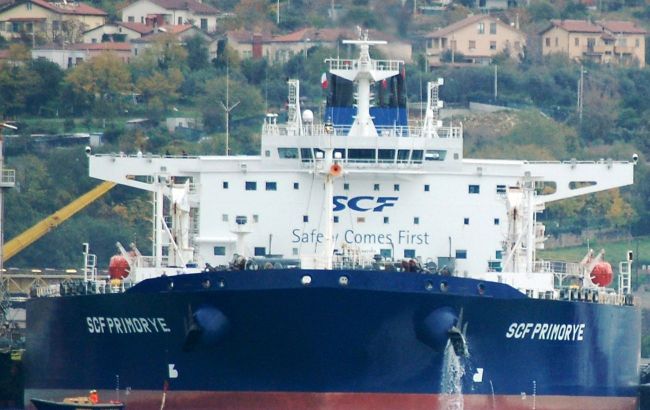Moscow found way to circumvent US sanctions against oil tankers
 Tankers from Russia secretly deliver oil to China (fleetmon.com)
Tankers from Russia secretly deliver oil to China (fleetmon.com)
The first Russian tanker attempting to deliver cargo under US sanctions has covertly transferred oil to another vessel, highlighting the extent Moscow will go to undermine the effectiveness of American restrictions on its fleet, citing Bloomberg.
In October, the tanker Primorye was sanctioned by the US Treasury's Office of Foreign Assets Control (OFAC), after which it did not load oil for about six months. However, in late April, the tanker headed to the Russian Black Sea port of Novorossiysk, loaded a cargo of Urals oil, and embarked on a 7,500-mile journey to a location about 70 miles east of Singapore.
This year, Russia has been exporting about 3.4 million barrels of oil per day, valued at around $37 billion, partly circumventing Western sanctions. Oil revenues for the state budget in May rose by nearly 50% compared to last year, as oil prices increased and the country adapted to these measures. However, the complex logistics involving the Primorye tanker indicate there are hurdles in this trade.
Shortly after arriving east of Singapore, the 275-meter tanker disappeared from the Automatic Identification System (AIS), which commercial vessels use for safety to transmit their location and destinations. AIS can be turned off by the ship's crew.
Satellite images show that on June 3, after its disappearance, the vessel transferred its cargo to another ship, the Ocean Hermana.
The Primorye tanker, carrying about 1 million barrels of oil, is owned by the Russian state oil tanker company PAO Sovcomflot.
Vessel identification
The two vessels were identified by Bloomberg based on their size, deck configuration, and color scheme. This identification was confirmed by TankerTrackers.com Inc., which specializes in interpreting satellite images to detect tankers violating sanctions.
The Ocean Hermana is about 20 years old. Much of its recent history has been spent sailing between locations around Singapore and the Malacca Strait, as well as Chinese ports.
If the cargo is eventually delivered to a refinery (most likely in China, given the location of the transfer), it would indicate how easily Russia can replicate this process with other sanctioned vessels. Since October, almost all of the 40 tankers sanctioned by OFAC have been unable to load oil, with only one being removed from the list. Not all of these tankers are owned by Sovcomflot.
Another sanctioned vessel, the Bratsk, is already following the Primorye tanker’s route. It is currently in the Indian Ocean with a cargo of Urals oil loaded in Novorossiysk on May 23 and is scheduled to arrive in Singapore on June 17.
Other tankers sanctioned and owned by Russian Sovcomflot may follow. Seven more have gone off the radar after entering the Black Sea. They are likely still there, as regulations require them to send automatic location signals when transiting through the Turkish straits.
The US Treasury imposed sanctions on the Russian state tanker group Sovcomflot to reduce the Kremlin's revenue from oil sales, which could be used to support the invasion of Ukraine.
Following this, Sovcomflot renamed some of its vessels. Tankers often change names after being sanctioned to distance themselves from the listings in sanctions databases.

